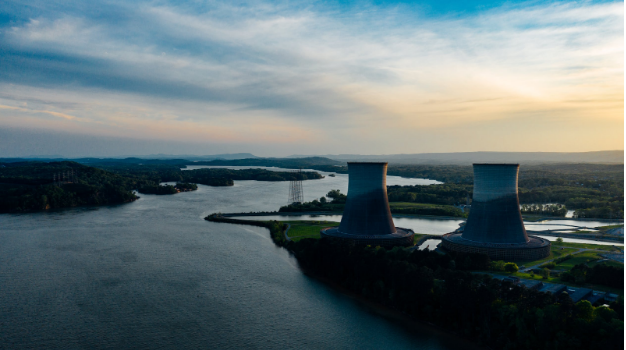Were You Exposed to Camp Lejeune’s Contaminated Water? Here’s What You Need to Know

Camp Lejeune, a storied U.S. Marine Corps base, carries a legacy tainted by a dark chapter of contamination. It was one of the most reputed Marine bases in the 1900s. According to data from Consumer Notice, it housed more than 34,000 individuals.
Its water supply was compromised for decades, exposing military personnel, families, and civilian workers to hazardous substances. Suppose you suspect you were exposed to Camp Lejeune’s contaminated water. In that case, this article provides crucial insights into the issue, its health implications, and legal actions.
Table of Contents
Understanding the Contamination
Camp Lejeune’s water supply contamination is a sobering example of environmental negligence and its far-reaching consequences. Once a hub of military activity and camaraderie, the base fell victim to contamination from various hazardous substances, including VOCs and solvents.
The contamination stemmed from various factors, including improper waste disposal, leaky storage tanks, and a lack of proper regulation during particular decades. These contaminants seeped into the groundwater and, subsequently, the drinking water, affecting thousands of lives over an extended period.
The impact of this contamination is not only environmental but also deeply personal. For those stationed at Camp Lejeune during the affected years, the unknowing consumption of contaminated water has been linked to severe health risks.
VOCs such as trichloroethylene (TCE) and perchloroethylene (PCE) have been associated with various health issues. Some of these health problems include an increased risk of certain cancers, neurological disorders, and reproductive problems. The chemical trichloroethylene was first discovered in the water supplied by the Hadnot Point treatment plant in 1982.
The tragedy of the Camp Lejeune contamination is a stark reminder of the importance of vigilance in maintaining clean and safe environments. It underlines the necessity of regulations and oversight to prevent similar incidents in the future. It also emphasizes the urgency of addressing the concerns of those unknowingly exposed to the toxic water during their time at the base.
Legal Developments and the Camp Lejeune Lawsuit
In the wake of the Camp Lejeune contamination revelations, legal actions emerged as a crucial avenue for seeking justice and accountability. The Camp Lejeune lawsuit is a testament to the resilience of those affected and their determination to hold responsible parties accountable.
As a pursuit of this, many individuals have filed the Camp Lejeune lawsuits, and judges are explicitly appointed to handle them. In May 2023, four judges were entrusted with taking more than tens of thousands of suits.
The Camp Lejeune lawsuit is a complex legal battle involving various stakeholders, including former Marines, their families, civilian workers, and advocacy groups. These parties have sought legal recourse against the U.S. government and other entities for their alleged failure to prevent the contamination and to promptly inform those at risk.
Over the years, this lawsuit has seen significant developments. Legal teams have painstakingly gathered evidence, including documentation of the contamination, its health effects, and the parties involved. While each case may differ in specifics, the overarching goal remains consistent. It is to secure compensation for medical expenses, pain, and suffering and hold those accountable for their negligence.
Key milestones have marked the progression of the Camp Lejeune lawsuit. These include court rulings, settlements, and ongoing negotiations to ensure justice for the victims. Settlements have been reached in some cases, providing relief to those affected, while others continue to be prosecuted.
The lawsuit also highlights the importance of environmental regulations and accountability in preventing such incidents. It underscores the responsibility of government agencies and organizations to prioritize the health and well-being of those who serve their country.
What Is the Camp Lejeune Settlement Amount?
The Camp Lejeune contamination saga has led to numerous legal battles seeking compensation for the physical and emotional toll the plaintiffs incurred. More than 45,000 administrative claims have been filed with the Office in Norfolk, Virginia after the PACT was signed.
There isn’t a single unified Camp Lejeune settlement amount. The legal journey has seen various settlements and financial resolutions tailored to different cases and circumstances. However, you can expect the Camp Lejeune settlement amounts to be anywhere between $10,000 to $500,000.
The range of settlement amounts is wide because many factors can influence them. According to TorHoerman Law, the Camp Lejeune settlement amounts can vary based on the severity of your medical condition. Additionally, how long you have been exposed to contaminated water also plays a vital role. The more exposed you are, the higher your Camp Lejeune lawsuit compensation can be.
These settlements are typically reached through negotiations between legal teams representing the plaintiffs and defendants, which may include government agencies and other responsible parties.
For some individuals, settlements have provided compensation to cover medical expenses related to health conditions linked to the exposure. Others have sought reparation for the pain and suffering endured due to the negligence surrounding the contamination. It’s important to note that these settlements serve as financial compensation and acknowledge the suffering endured by those affected.
As the Camp Lejeune lawsuits span many cases, from individual claims to class-action suits, settlement amounts can vary widely. Some individuals have received significant settlements to address severe health conditions caused by exposure, while others may receive more modest compensation.
Given the complexity and ongoing nature of the legal proceedings, it’s recommended that individuals seeking information about specific settlement amounts consult legal professionals. Alternatively, they can view official sources related to the Camp Lejeune litigation. They can provide accurate information tailored to individual situations, ensuring that those affected have the most relevant details about settlement outcomes.
Steps for Individuals Exposed to Take
If you suspect you were exposed to Camp Lejeune’s contaminated water, taking proactive steps is crucial to safeguard your health. Here’s a guide to the key actions you should consider:
- Seek medical evaluation: Schedule a thorough medical evaluation with a healthcare professional familiar with the health risks associated with the contaminants. Discuss your exposure history and any symptoms you may be experiencing. Early detection and monitoring of potential health issues are essential.
- Document your exposure: Gather evidence of your time at Camp Lejeune during the contamination period. This could include records of assignments, housing, and other relevant documentation. These records may be valuable if you pursue legal action or claim benefits.
- Consult legal professionals: If you’re considering legal action, consult an attorney experienced in handling environmental contamination and personal injury cases. They can guide your legal rights, potential avenues for compensation, and the steps required to pursue a case.
- Understand your legal options: Explore the various legal options available, including joining a class-action lawsuit, following an individual claim, or seeking compensation through settlement negotiations. Your attorney can help you understand which option fits your situation and objectives best.
- Keep updated: Stay informed about the latest developments in the Camp Lejeune legal proceedings, including any updates on settlements. Being informed will help you make well-informed decisions about your next steps.
- Connect with support networks: Reach out to support groups, advocacy organizations, and communities dedicated to individuals affected by Camp Lejeune’s contamination. Connecting with others who have shared similar experiences can provide emotional support and valuable insights.
- Preserve records and documents: Keep copies of all medical records, correspondence, and other relevant documents related to your exposure and health condition. These records can serve as important evidence should you pursue legal action or claim benefits in the future.
- Consider psychological support: Exposure to environmental contamination and potential health issues can take an emotional toll. Consider seeking psychological help, such as counseling or therapy, to address any stress, anxiety, or emotional challenges you may face.
Conclusion
The legacy of Camp Lejeune’s contaminated water is a stark reminder of the far-reaching implications of environmental negligence. Understanding the contamination, health consequences, and legal developments is essential for those potentially affected.
By seeking medical evaluation and consulting legal professionals, you can take proactive steps to safeguard your well-being and explore potential avenues for justice.




